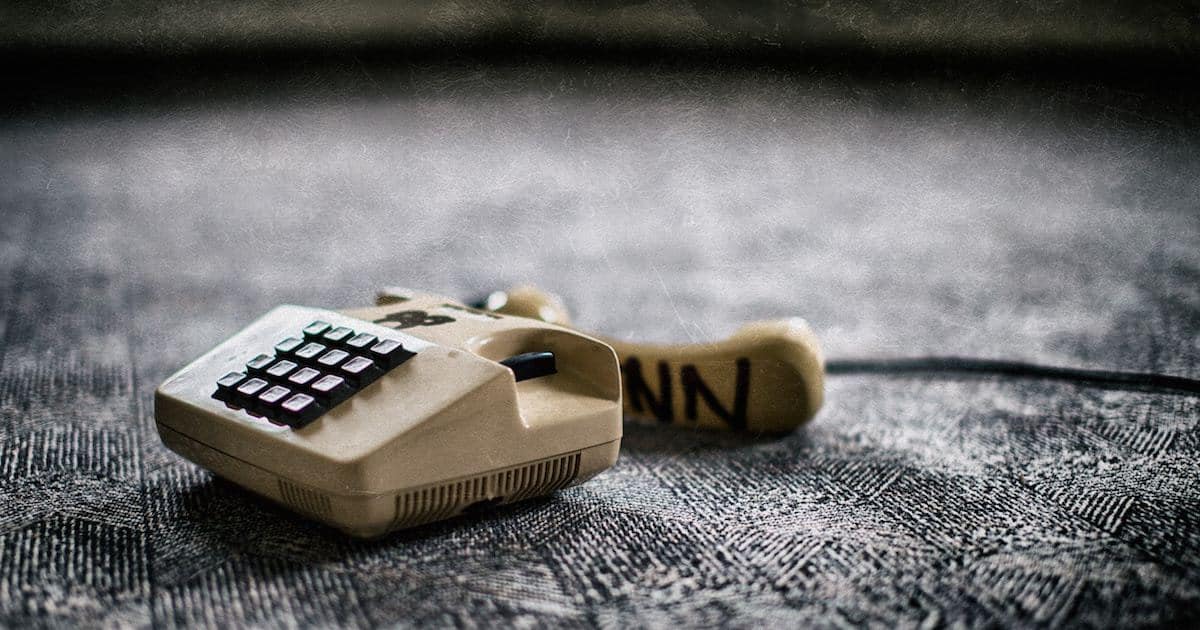A few weeks ago I walked into my local Best Buy, marched up to the counter, and said “I want to buy your cheapest phone.” The guy looked at me quizzically for a moment, then wandered over to the shelf and returned with a box labeled “Polaroid A300.”
“Forty-nine bucks. That cheap enough?”
“Let’s do it.”
Then and there we swapped the SIM card out of my iPhone and popped it into that new flip phone. It hasn’t budged since.
I believe the smartphone is one of the most remarkable devices ever created. It is undoubtedly also one of the most powerful and captivating. With each new iteration it expands its capabilities and extends its indispensability. It’s getting hard to remember life before it and even harder to imagine life without it. All the more reason to try, I say.
Do I own this phone, or does it own me? Who here is the servant and who’s the master?
For some time I had been battling a growing conviction that my phone had taken an outsized place in my life. This manifested itself in a number of ways, but none more concerning than how it had come to fill up nearly every single one of life’s little cracks. In almost any spare moment of standing, waiting, or pausing, I’d unthinkingly grab it and start tapping, typing, and swiping. In almost any context of boredom, I’d find that it had somehow materialized in my hand, almost as if by magic. It’s like I just couldn’t help myself. It’s like I just didn’t want to. This little glowing rectangle had become my near-constant companion. I had to start asking myself: Do I own this phone, or does it own me? Who here is the servant and who’s the master?
I love my smartphone for all the ways it enhances my ability to succeed at those things in life that are most important to me. I want to write and it helps me write. I want to travel safely and efficiently and it helps me travel safely and efficiently. I want to stay in communication with my kids and it helps me stay in communication with my kids. In these ways and others, it is a tremendous blessing.
But I hate my smartphone for all the ways it erodes my ability to succeed at those things in life that are most important to me. I want to read good books, but it offers a world of more entertaining alternatives. I want to think deeply, but it distracts me with its endless beeps and buzzes. I want to live a life of moderation, but it lures me into indulgence. In these ways and others, it is a tremendous curse. It giveth with one hand and taketh away with the other. It promises to help me live the life I want to live while actually keeping me from it.
The problem I keep encountering is that it seems almost impossible to have the blessing without the cursing. I see no clear path to enjoying all the benefits of the smartphone without also bearing the cost of all its drawbacks. I love my phone when I own it; I hate my phone when it owns me. And I just haven’t figured out yet how to be the one who remains in charge.
And that’s the thing: the smartphone is carefully engineered to remain in charge. Neither the creator of the device nor the creators of its apps make their money through my moderation. They keep their shares soaring through my indulgence and so they do all they can to foster it. They make their timelines scroll endlessly so I can never get to the bottom. They make me pull down to refresh, turning their apps into miniature slot machines that may—just may!—reward me this time. They make their notifications colorful and compelling so I almost can’t resist responding. Their great strength is taking advantage of my great weaknesses.
But it’s too easy to lay all the blame at their feet. In so many ways they are only giving me what I want. I want to feel important, so they reward me with hearts and likes and accolades. I want to feel informed, so they constantly feed me news and headlines. I want to stay in touch, so they prompt me to initiate, to reply, to respond. What I crave, they deliver. Yet the more I get it, the unhappier I become. It’s a vicious circle, this.
I’ve begun to feel like I’m waking up from a long sleep.
For now I’ve interrupted the circle by acquiring this ancient/new phone. And through the weeks I’ve begun to feel like a fog is slowly lifting, like things that were opaque are beginning to come clear. I’ve begun to feel like I’m waking up from a long sleep. I’ve begun to remember what life was like before the iPhone and its millions of imitators invaded my life. I’m starting to see what it has offered to me and what it has cost. There are a few things I miss, like Maps and Music and Uber. There are far more I don’t care if I never see again.
So here’s the plan: I will keep this flip phone until I have been cured of that subconscious reflex to pull out my phone in every one of life’s unspoken-for moments. Until then I’m the addict varying his route home so he doesn’t pass by his dealer, I’m the glutton banishing all snacks until he’s established self-control. And when that reflex is cured, I will take back my iPhone, but only if it is stripped of social media, email, and obnoxious notifications that demand my attention. And then maybe I’ll pass that little flip phone to someone else so they can use it to wake up and to remember.










